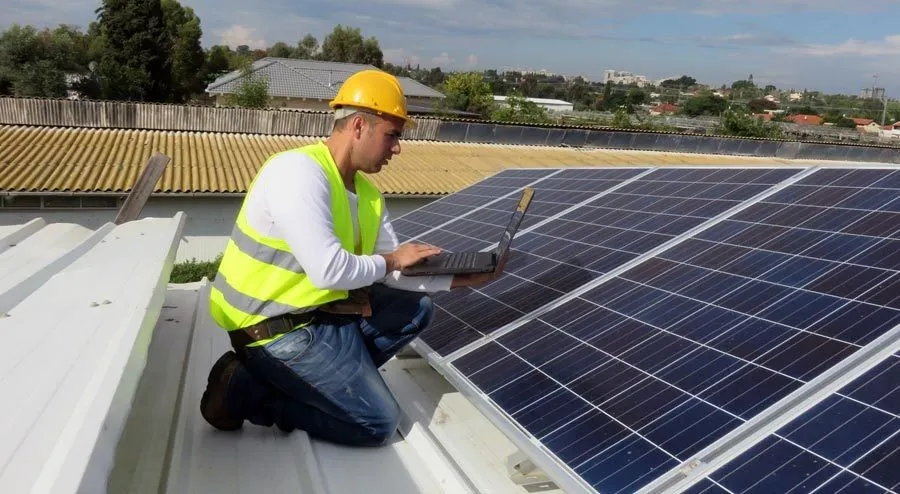Access to reliable and affordable energy is a fundamental driver of economic development and social progress. However, many developing countries still face significant energy challenges, including limited access to electricity, unreliable grids, and reliance on fossil fuels. Solar panel installations have emerged as a promising solution to bridge the energy gap in these regions, providing clean and sustainable electricity that can transform communities and economies. In this article, we will explore the role of solar panel installation in developing countries, the benefits it brings, and the challenges it addresses in the pursuit of energy access and sustainability.
The Energy Challenges in Developing Countries
Developing countries often struggle with several energy-related challenges that hinder their socio-economic progress:
- Limited Access to Electricity: A significant portion of the population in developing countries lacks access to electricity. This limits their ability to access education, healthcare, and economic opportunities.
- Unreliable Grids: In many regions, power grids are unreliable, leading to frequent blackouts and voltage fluctuations that disrupt daily life and economic activities.
- High Energy Costs: The cost of electricity can be prohibitively high for many households and businesses in developing countries, impacting their financial stability.
- Dependence on Fossil Fuels: Developing countries often rely on fossil fuels for energy generation, leading to environmental degradation, air pollution, and contributing to global carbon emissions.
- Energy Poverty: Energy poverty, defined as a lack of access to modern energy services, affects millions of people in developing countries, leading to health issues, reduced productivity, and limited opportunities for development.
The Role of Solar Panel Installation
Solar panel installation offers a viable and sustainable solution to address these energy challenges in developing countries. Here’s how solar power can make a difference:
- Access to Clean Energy: Solar panels provide a decentralized and clean energy source, allowing even remote and off-grid communities to access electricity for lighting, cooking, and powering appliances.
- Reliable Power Supply: Solar energy systems can provide a reliable source of electricity, reducing the impact of power outages and voltage fluctuations on households and businesses.
- Cost Savings: Solar power can significantly reduce energy costs over the long term, making it more affordable for households and businesses in developing countries.
- Environmental Benefits: Solar panels produce clean energy without emitting greenhouse gases, helping to combat climate change and reduce air pollution.
- Energy Independence: Solar installations reduce dependence on fossil fuels and centralized energy grids, providing a degree of energy independence and resilience.
- Economic Opportunities: Solar panel installation creates job opportunities in manufacturing, installation, and maintenance, contributing to local economic development.
- Improved Health and Well-being: Access to electricity for lighting and clean cooking reduces indoor air pollution and improves overall health and well-being.
Solar Panel Installations in Developing Countries: Success Stories
Several developing countries have embraced solar panel installations to address their energy challenges and achieve sustainable development:
- India: India’s ambitious solar energy program aims to install 100 GW of solar power capacity by 2022. Initiatives like the “Solar Saathi” program train women entrepreneurs to promote and distribute solar products in rural areas, expanding energy access.
- Kenya: Kenya’s “Last Mile Connectivity” program has extended the grid to remote areas while promoting off-grid solar solutions. This approach has significantly increased energy access and reduced energy poverty.
- Bangladesh: Bangladesh’s “Solar Home System” program has provided millions of households with solar panels and batteries, transforming rural electrification and reducing reliance on fossil fuels.
- Rwanda: Rwanda has embraced solar energy to electrify schools, healthcare centers, and off-grid communities. The government’s commitment to solar power has contributed to significant progress in energy access.
- Haiti: In Haiti, solar microgrids have provided reliable electricity to off-grid communities, enabling economic activities and improving living conditions.
Challenges and Considerations
While solar panel installations offer substantial benefits for developing countries, several challenges and considerations must be addressed:
- Upfront Costs: The initial investment for solar panel installations can be a barrier for low-income households and small businesses. Innovative financing models, such as pay-as-you-go and microloans, can help overcome this challenge.
- Maintenance and Repairs: Ensuring the proper maintenance and repair of solar systems is crucial to their long-term sustainability. Training local technicians and establishing maintenance programs are essential.
- Regulatory Framework: Developing countries must create a conducive regulatory framework that promotes solar energy adoption, including streamlined permitting processes and incentives for solar investments.
- Access to Capital: Access to affordable financing and credit is essential to support the deployment of solar panel installations, particularly for larger-scale projects.
- Infrastructure Development: Developing the necessary infrastructure, such as storage solutions and grid integration, is crucial for maximizing the benefits of solar power.
- Education and Awareness: Raising awareness about the benefits of solar energy and providing education on its use and maintenance are vital for successful adoption.
Conclusion
Solar panel installation represents a transformative solution to address energy challenges in developing countries. By providing clean and sustainable electricity, it improves access to essential services, reduces energy costs, and contributes to economic development. As the world increasingly recognizes the importance of renewable energy and sustainability, the adoption of solar power in developing countries offers a pathway to a brighter and more equitable future. By overcoming challenges, embracing innovative financing models, and creating a supportive regulatory environment, developing nations can harness the power of the sun to bridge the energy gap and drive sustainable development.

